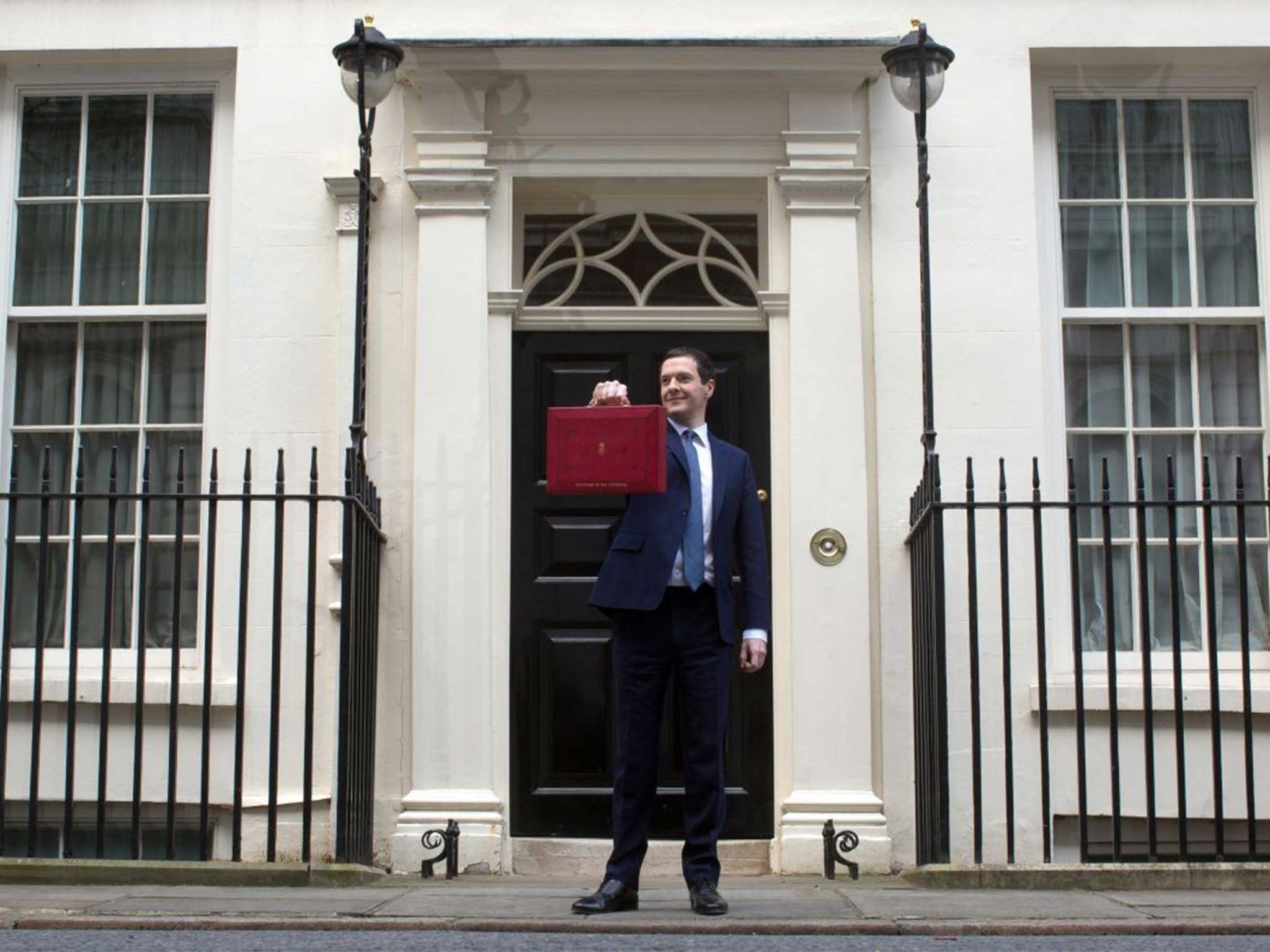George Osborne plans suggest deepest cuts just before 2020 election, Resolution Foundation warns
The Chancellor has pushed uncomfortable decisions back to 2020.

George Osborne will need to reduce borrowing by £32 billion to meet his own budget surplus rule by 2019-20, a leading economic think-tank has calculated.
The Resolution Foundation said giveaways including a cut to taxes for higher earners, corporations, and capital gains were “misguided” when official growth forecasts were being cut.
It also warned that sharp cuts would likely be required in 2020 – a pre-election year.
“By increasing spending through expensive and poorly targeted tax cuts, the chancellor has created a Herculean task of reducing borrowing by £32bn in a pre-election year,” the organisation’s chief economist Matthew Whittaker said.
“It is hard to see a government seeking to build a pre-election feel-good factor delivering a consolidation comparable to that seen during the chancellor’s first two years in office
“We think it is misguided to be giving away money on increases in higher thresholds for the personal allowance and 40p rate, which we estimate will cost around £2bn.”
The Foundation’s warning chimes with one made earlier this morning by the Institute for Fiscal Studies.
The IFS’s director Paul Johnson said this morning that Mr Osborne would “be forced to put some proper tax increases in or possibly find some yet further proper spending cuts” if economic conditions deteriorated further.
Torsten Bell, the Foundation’s director, wrote in an article on its website that on current timescales the Chancellor would have to make very sharp cuts in a pre-election year.
“The Chancellor has done the right thing by not over-reacting in the short term to swings in the OBR’s fiscal forecasts,” he wrote.
“His priority yesterday was to show that he still had a plan to deliver a £10bn surplus in the last year of this parliament.
“We think that plan requires what you might politely call an ambitious cut to borrowing in a pre-election year – although time will tell.”
If cuts do fall in 2020, they will also likely coincide with cuts to tax credits, which have been rolled into Universal Credit – which itself is due in 2020.
The Government is technically bound by the Fixed-Term Parliament Act, which mandates elections every five years and was passed by the Coalition.
The Act could however in theory be repealed by Parliament – though it would have to receive the agreement of the House of Lords, where the Government does not technically have a majority.
If the Act were repealed an early election could be called – meaning the planned cuts would fall in the middle of a parliament.
Join our commenting forum
Join thought-provoking conversations, follow other Independent readers and see their replies
Comments
Bookmark popover
Removed from bookmarks